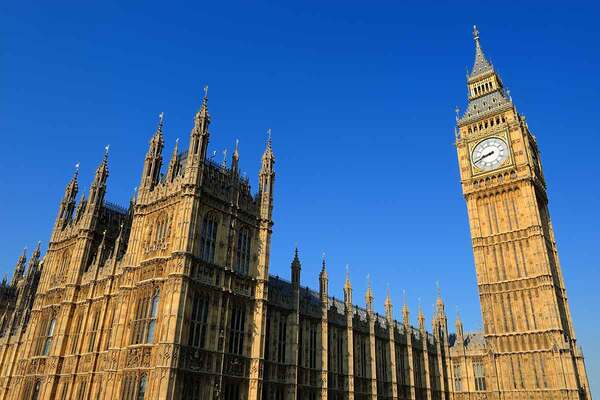Government mulls 3% rent cap next year under new consultation
Housing associations and councils in England could be restricted to increasing annual rents by only three per cent for the next financial year, depending on the outcome of a new government consultation.
The Department for Levelling Up, Housing and Communities (DLUHC) has today launched a consultation on introducing a temporary rent cap for social housing for the 2023-24 financial year, with three options being proposed.
The options are to allow housing associations and councils to increase rents at: three per cent, five per cent, or seven per cent.
The full consultation document said the government’s draft direction is based on setting the cap at five per cent.
However it said it is also seeking views on three per cent, five per cent and seven per cent as a cap and is "open to other percentage proposals that may be put forward by consultees".
The consultation, which runs until 12 October, will also “seek views” on introducing a rent cap for the 2024-25 financial year. A review of social rent policy beyond 2025 will also be conducted through a separate consultation next year, the government said.
Under the current system, social housing landlords can increase rents by the Consumer Price Index (CPI) plus one per cent, meaning with current levels of inflation, this would have been around 11 per cent.
However, speculation had been mounting in the sector that ministers would intervene to help tenants dealing with the cost of living crisis. Social Housing revealed last Monday (22 August) that the government was planning to launch a consultation on rent policy for next year.
Announcing the consultation, housing secretary Greg Clark said: “We must protect the most vulnerable households in these exceptional circumstances during the year ahead.
“Putting a cap on rent increases for social tenants offers security and stability to families across England.
“We know many people are worried about the months ahead. We want to hear from landlords and social tenants on how we can make this work and support the people that need it most.”
A statement from DLUHC said the government “understands this will impact social housing landlords and is engaging fully with the sector”.
DLUHC said a cap would save tenants an average £300 per year and provide “stability” to around four million households.
However, one executive at a major housing association is understood to have described a potential three per cent cap as “apocalyptic”.
Prior to today’s announcement, several associations told Social Housing they were stress-testing different scenarios of rent increases and their impacts, but none had said they planned on raising rents by the full amount permitted under the current rent standard.
The government said that following the consultation, a final decision will be announced later this year, to ensure social housing landlords have enough time to factor it into their rent decisions.
Geeta Nanda, chair of the G15 and chief executive of Metropolitan Thames Valley, welcomed the consultation and the opportunity to discuss the issue.
She said: “All G15 members recognise the current high rates of inflation and are considering the impact of this on residents and the essential work we do carefully.
“To maintain and improve existing residents’ homes, as well as continuing to build much-needed new affordable homes, significant investment each year is essential. Rental income is critical to supporting this work.”
She added: “Housing associations have already seen costs for vital materials for repairs and maintenance work increase by as much as 16.8 per cent this year, and the cost of constructing new homes has grown by more than 11 per cent as well.
“In getting the balance right on rent-setting, we are committed to maintaining affordability for residents. We welcome the government’s consultation and the opportunity to discuss these important issues further.”
Sign up for Social Housing’s weekly news bulletin
Social Housing’s weekly news bulletin delivers the latest news and insight across finance and funding, regulation and governance, policy and strategy, straight to your inbox. Meanwhile, news alerts bring you the biggest stories as they land.
Already have an account? Click here to manage your newsletters.
RELATED









